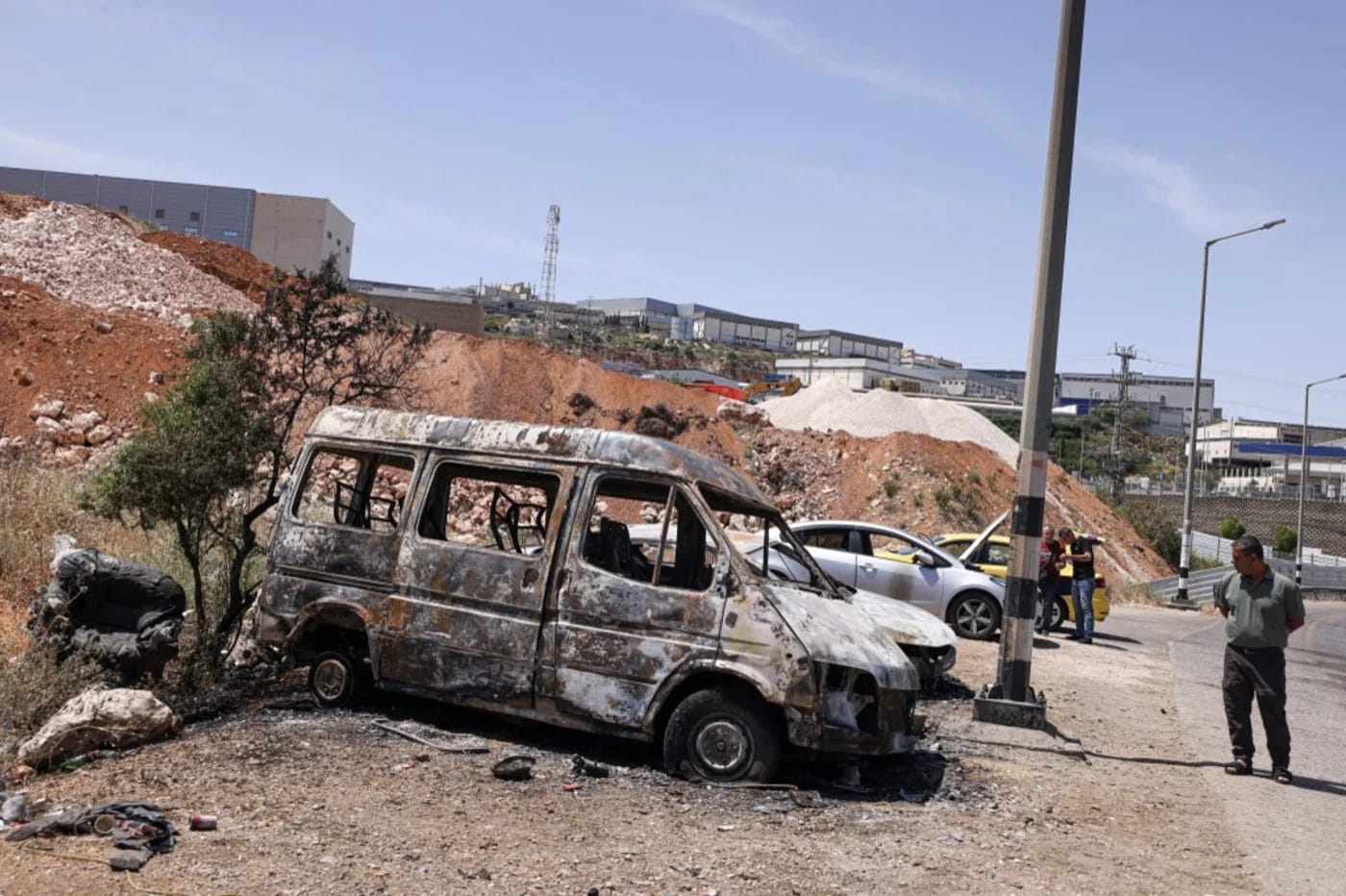Settler Attacks Soar In West Bank As Israel Surges Ethnic Cleansing
Israeli settler attacks against Palestinian communities in the occupied West Bank have intensified in recent weeks under a total siege.
In the occupied West Bank, a surge in violent attacks by Israeli settlers has left Palestinian communities under siege, with homes burned, olive groves destroyed, and families forced to flee under threat of armed intimidation. These assaults—often carried out with the tacit approval or outright assistance of Israeli forces—are not isolated incidents but part of a decades-long strategy to expel Palestinians from their land and entrench illegal settlements. Despite international condemnation, the violence continues with near-total impunity, fueling fears of mass displacement and further destabilizing a region already on the brink. This report examines the escalating settler attacks, the political forces enabling them, and the resilience of Palestinian communities fighting to remain on their land.
Part of a broader pattern of violence that has drawn widespread condemnation from human rights groups and foreign governments. The latest wave of assaults—involving physical attacks, arson, property destruction, and armed intimidation—has left Palestinian villages reeling, with many residents fearing further displacement.
Notable Incidents and Hotspots of Violence
Local sources and monitoring organizations report that settler attacks have been concentrated in areas near Nablus, Hebron, and Ramallah, where Palestinian communities are frequently targeted. Some of the most severe incidents include:
Burqa (near Nablus):Armed settlers, some under military escort, set fire to olive groves, destroying a critical livelihood for Palestinian farmers. Olive trees, which can take decades to mature, are often deliberately targeted in what rights groups describe as economic warfare.
Masafer Yatta (South Hebron Hills): Residents of this herding community faced violent raids, with settlers vandalizing homes and water tanks. The area has long been a flashpoint, as Israel seeks to forcibly relocate hundreds of Palestinians under the pretext of military training zones.
Al-Mughayyir (near Ramallah): A mob of settlers attacked the village, shooting at civilians and burning houses and vehicles. One Palestinian was killed, and several others were injured in what locals called a "pogrom-like" assault.
Settler Violence as a Tool of Displacement
Human rights organizations, including B’Tselem and Yesh Din, have documented a sharp rise in settler violence since the start of Israel’s war on Gaza in October 2023. The UN Office for the Coordination of Humanitarian Affairs (OCHA) has recorded over 800 settler attacks in the past eight months alone—a significant increase compared to previous years.
Many of these attacks follow a familiar pattern: settlers, often armed and sometimes accompanied by soldiers, descend on Palestinian villages, assault residents, and destroy property. Israeli forces frequently fail to intervene, in some cases, actively facilitate the violence by blocking Palestinian access to their land.
"This isn’t random lawlessness—it’s a coordinated effort to push Palestinians off their land. Settlers act with impunity because the state allows it, and often benefits from the results."
Hagit Ofran of Peace Now explains.
Government Complicity and International Response
The Israeli government has faced accusations of tacitly endorsing settler violence, particularly under the far-right administration of Prime Minister Benjamin Netanyahu. Key figures in his coalition, such as Finance Minister Bezalel Smotrich and National Security Minister Itamar Ben-Gvir, have openly supported settlement expansion and even encouraged armed settler militias.
Despite repeated condemnations from the UN, EU, and US, Israel has taken little meaningful action to hold perpetrators accountable. A 2023 investigation by +972 Magazine revealed that over 93% of Israeli investigations into settler attacks are closed without indictment.
The Biden administration has imposed sanctions on a handful of violent settlers, freezing their assets and banning travel to the US. However, critics argue that these measures are largely symbolic, failing to curb the broader trend of state-backed displacement.
Palestinian Resistance and Local Solidarity
In response, some Palestinian communities have organized popular resistance committees, attempting to document attacks and rebuild damaged infrastructure. International activists, including Israeli anti-occupation groups like Ta’ayush, have also stepped in to accompany shepherds and farmers at risk of settler violence.
"Every time they burn our trees, we replant them. They want us to leave, but we will stay. This is our land."
Ahmed, a farmer from Masafer Yatta.
A Broader Pattern of Occupation
Settler violence is not an isolated phenomenon but part of Israel’s decades-long policy of land confiscation and demographic control. Since 1967, over 700,000 settlers have moved into the West Bank and East Jerusalem, in violation of international law. The Oslo Accords’ division of the West Bank into Areas A, B, and C has further entrenched segregation, with Area C—under full Israeli control—seeing the most aggressive settlement expansion.
With peace talks long-stalled and Israel’s government opposed to Palestinian statehood, settler attacks serve as another tool to undermine the possibility of a two-state solution.
What Comes Next?
As violence escalates, the international community faces mounting pressure to take stronger action. Some legal experts argue that the International Criminal Court (ICC) should investigate settler attacks as potential war crimes. Meanwhile, Palestinian leaders continue to call for sanctions on Israel and accountability for those enabling the violence.
For now, Palestinian villagers remain trapped in a cycle of displacement and resistance, with no end in sight.







